Judith Barrington's Writing the Memoir
Chapter 12
&
Christopher Vogler's The Writer's Journey
Introduction to 25th Anniversary & Previous Eds
We’re on the last chapter of Judith Barrington’s book, Writing the Memoir, “Practical Advice on Critique Groups,” which covers all the dos and don’ts of giving and getting feedback. It’s practical and useful and everything we’ve come to expect from Barrington. But before we close the book on memoir, we give our final takes on the book along with what chapters we think are most useful.
And then …. something new.
Our new book is Christopher Vogler’s The Writer’s Journey. Written back in the late 90’s, this book brought the Hero’s Journey mainstream for scriptwriters, and also, as the subtitle promises, for writers. Before we jump into the book proper, we take a moment to consider its introductions (there’s two of them) and the promises they make. Get ready for the snark, but also an examination on the mythic structure plotting approach to your writing.
Remember, we have a Writers Process/Writing Sprint meetup every Wednesday. Check us out.
Here to help us usher in our new season and new book, The Writer’s Journey, we talk with Devon Trevarrow Flaherty, an author and blogger, who has not only written a review of Vogler’s book, but used Campbell’s Monomyth to chart the plot of one of her novels.
"If you are a writer of any sort, this is the kind of book that if you haven’t read it already, you will want to get your hands on it."

Devon Trevarrow Flaherty is the author of Benevolent and The Night of One Hundred Thieves. She also blogs about the writing process and reviews books at The Starving Artist. You can purchase her books here.
The Last Chapter of Writing the Memoir
We say goodbye to Judith Barrington’s Writing the Memoir with an eager eye towards the future. It’s not that we didn’t enjoy our time together. She was a cordial guest in the pursuit of writing one’s memoir. She promised. She delivered. She left right before the keg arrived. Not that there’s anything wrong with that. She’s practical and dependable but will tell your parents you had a party while they were on vacation. She’s just not the kind of friend to match vodka jello shots at the bar, get tossed out of strip clubs for flinging panties at the male stripper, and hold back your hair as you hurl in the parking lot (not that we’d know anything about that…).
Getting Feedback on your Work (Let's Play Nice Now)
So in the true, supportive, professional form we’ve grown to both appreciate yet grow slightly rebellious from, Barrington leaves us with respectable guidelines for workshopping both your work and others.
An Apology to Barrington
Of course Barrington runs a respectable ship, but these are SnarkNotes after all (Renee has one job and she’s going to do it, dammnit!). And with that, it’s time to throw the adults overboard. Sorry, Barrington, this is our ship now. (If you’d like to read her guidelines as intended, you can listen to the episode).
How to Get Kicked out of a Memoir Workshop
If you ever find yourself in a memoir writing workshop, tasked with critiquing a draft, here’s what you can do to get yourself permanently banned:
- Let your sympathy get in the way of critiquing the craft.
- Interrupt other members of the group while they are giving advice.
- Speak for your work while others are trying to give you feedback.
- Encourage anarchy instead of agreeing to a prescribed set of standards and guidelines for appropriate behavior.
- Spearhead a Mutiny to subvert the Workshop Leader’s efforts to maintain a safe, supportive space to share personal work.
- Refer to the protagonist in a draft by the author’s first name (extra points for emphatically pointing at the author as you talk).
Thanks, Judith Barrington, for all the Fish! (and writing advice)!

As a whole, Kim and Renee would recommend Judith Barrington’s Writing the Memoir to someone who is first starting out on their writing journey. They thought the following chapters (with shamelessly plugged corresponding podcast episodes) were particularly helpful:
The Writer's Journey
by Christopher Vogler
New Season - New Book
Every Genre Writer's Dream
You know it by many names: The Hero’s Journey; The Monomyth theory; Jungian Archetypes. You’ve seen it displayed as easy-to-follow infographs, analyzed and dissected film by film on youtube channels and written about on blogs. The Writer’s Journey is all of these things plus a promise: By the end of this book, you, too, will be able to write a plot and craft well rounded characters everyone will love.
But can a writer really hack the ancient plots programmed into our evolved brains? Or is it just another As Seen On TV product that promises more than it can deliver? Good thing you have us. Right, Dear Listener?
Here’s a handy-dandy Study Guide to the Hero’s Journey (just for you).
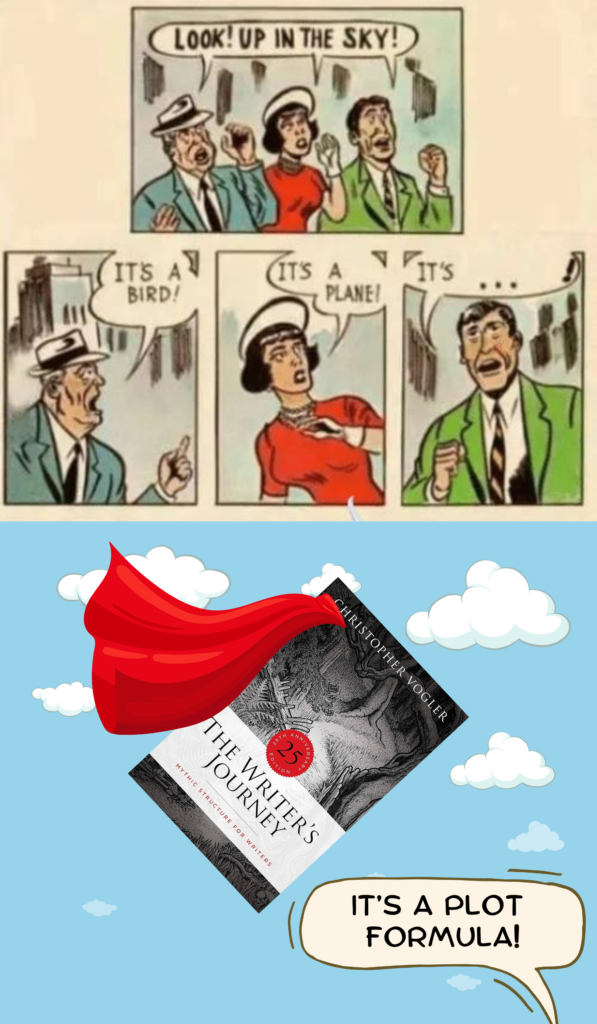
Christopher Vogler
Christopher Vogler is a Hollywood Development Executive and President of Storytech Literary Consulting. He was a professor at UCLA. He has consulted for Disney, Fox, and Warner Brothers.


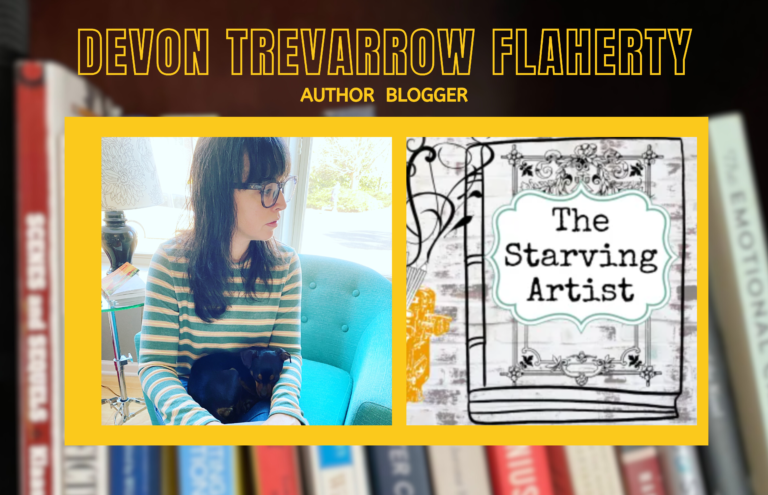

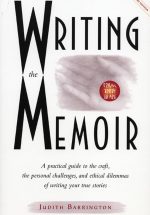



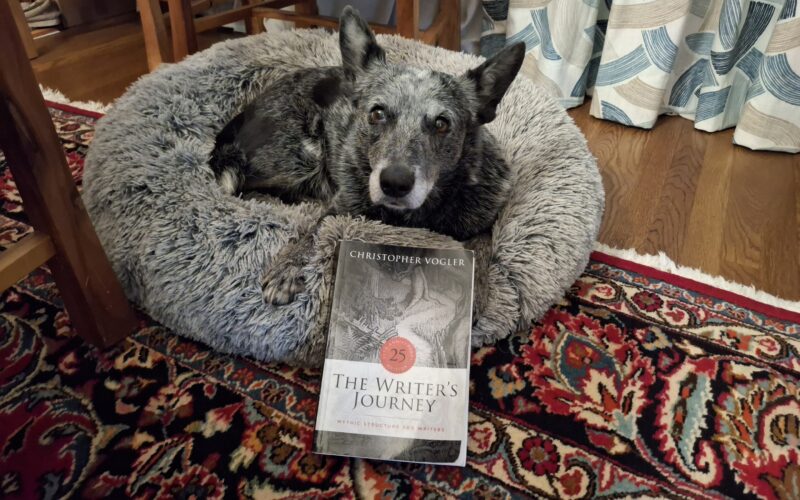
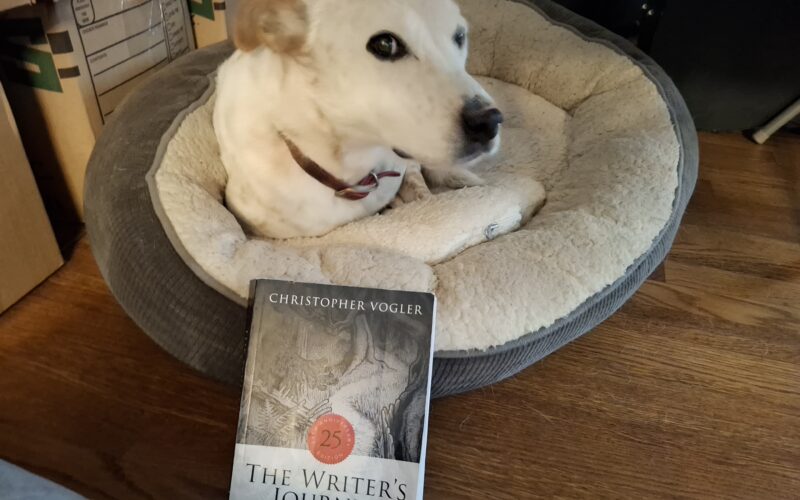
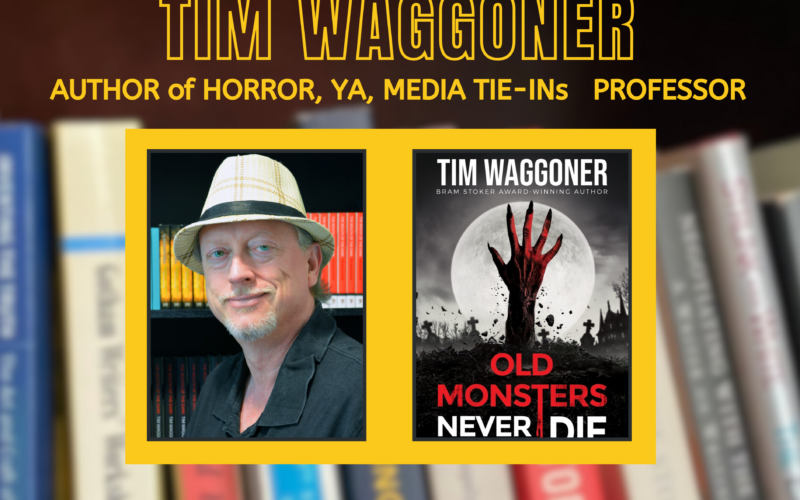



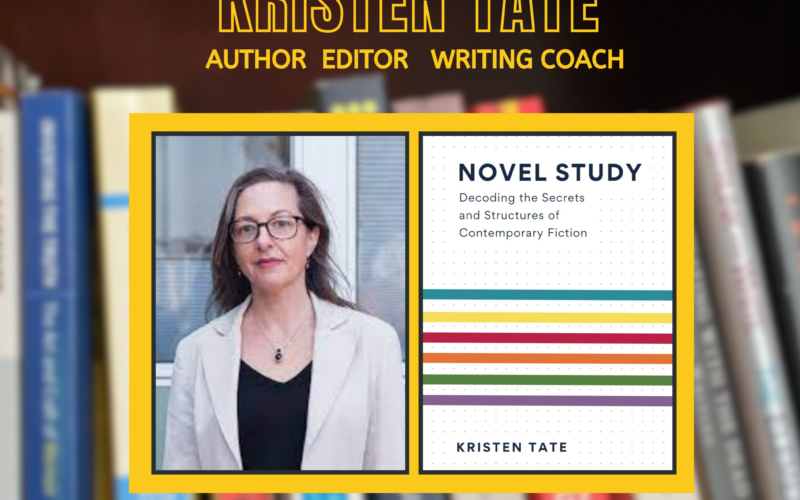
Not Your Usual Words to Write By: The AI Podcasting Challenge
Authors & AI SeriesEpisode 7: Not Your Usual Words to Write By: The AI Podcasting Challenge! Is nothing sacred? After exploring how AI might steal our writing jobs, we’re...